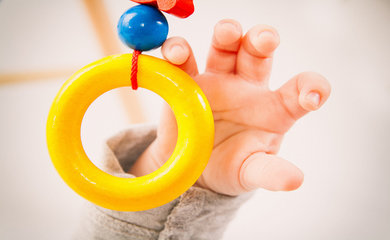The persistent myth of the perfect mother is a narrative that shapes and limits women’s lives even as family structures and women’s choices expand and change in the new millennium. Developing ways to escape the societal pressures faced by mothers is the subject of many of the essays in feminist press Seal’s new collection ‘The Good Mother Myth: Redefining Motherhood to Fit Reality’, edited by Avital Norman Nathman.
As Norman Nathman’s introduction illustrates, the mythical Good Mother ’embodies the perfect blend of modern woman and hipster housewife. She is usually white, middle to upper class, heterosexual, married.’ This Good Mother is to be seen on Pinterest and in advertisements, and maybe glimpsed pushing a designer pram with perfectly sleek hair and an organic free-trade chia smoothy in one hand. What this Good Mother is not is particularly human or accessible; but Norman Nathman has assembled here more than 35 distinctly human contributors to offer readers something real.
Most parents will relate to Amber Dusick’s essay on being a sleep-deprived ‘Zombie Cavewoman’, Jessica Valenti’s anxiety about the line between protective and over-protective, and Arwyn Daemyir’s personal exploration of love-through-frustration. For readers who seek a departure from the frequently banal prose of most parenting books, there are some beautifully rendered chapters, particularly Andie Fox’s tender musings on weekends away from male partners and Victoria Brooke Rodrigues’ thoughtful ‘The Hallowed Life of an Agnostic Mother’.
The real strength of the collection, however, is in the stories which explore parenting from the margins. Shay Stewart-Bouley’s piece on being a non-custodial mother is both heart-wrenching and affirming and remained with me for days after reading. ‘When Good Mothers Come From Bad Ones’ is an important inclusion, as Gina Crossley-Corcoran writes frankly of the consequences of abusive mothering and of her own healing through becoming a parent.
It is clear that Norman Nathman has aimed to provide readers with variety and a range of experiences. There are stories about lesbian parenting, adoption, miscarriage and premature birth alongside musings on drug use and cooking. As a marginalised mother, I found myself yearning for a few more offerings that explored what it is like to mother without societal approval. Since the cultural judgement of parents also extends to stepmothers, foster mothers, grand-mothers and other carers, some of these voices would have been welcome. But this is a minor criticism of what is already 270 pages of women’s personal accounts.
In her introduction, Norman Nathman highlights that the myth of the good mother is ‘insidious on a systemic level’ as it pits us against each other and distracts us from the political struggles of reproductive freedom, health care and workplace issues such as paid parental leave. It is therefore a little disappointing that few of the essays in her collection are overtly political. (A notable exception is Soraya Chemaly’s treatise on on the value of volunteering, which should be compulsory reading for anyone joining a fundraising committee.) Rather, contributors have largely focused on the personal experience of being a mother, and striving to be Good in their particular circumstances.
Motherhood is a topic which lends itself to personal reflection. Most of us who mother consider it a vitally important role. Most of us experience anxiety and ambivalence, as well as joy, in our day-to-day parenting. Because it offers a glimpse into how other women are doing it, and leaves readers with the impression that everyone struggles sometimes, ‘The Good Mother Myth’ is a worthy addition to any parenting-book shelf. And for feminists who are just starting to consider the social and political implications of motherhood, this is a good primer on some of the diversity of experiences and needs women have whilst doing the work of mothering. What the book makes clear is that whether they are overtly political or not, women’s stories matter. T. F. Charlton’s important chapter on black motherhood concludes with a statement that could well sum up the aim of this collection: “This is better than being acknowledged as a Good Mother: to be seen as a mother and fully human at once. This is liberation.”
Photo by _-o-_, licensed under a Creative Commons Attribution 2.0 Generic license.


One thought on “Review: The Good Mother Myth”
Comments are closed.